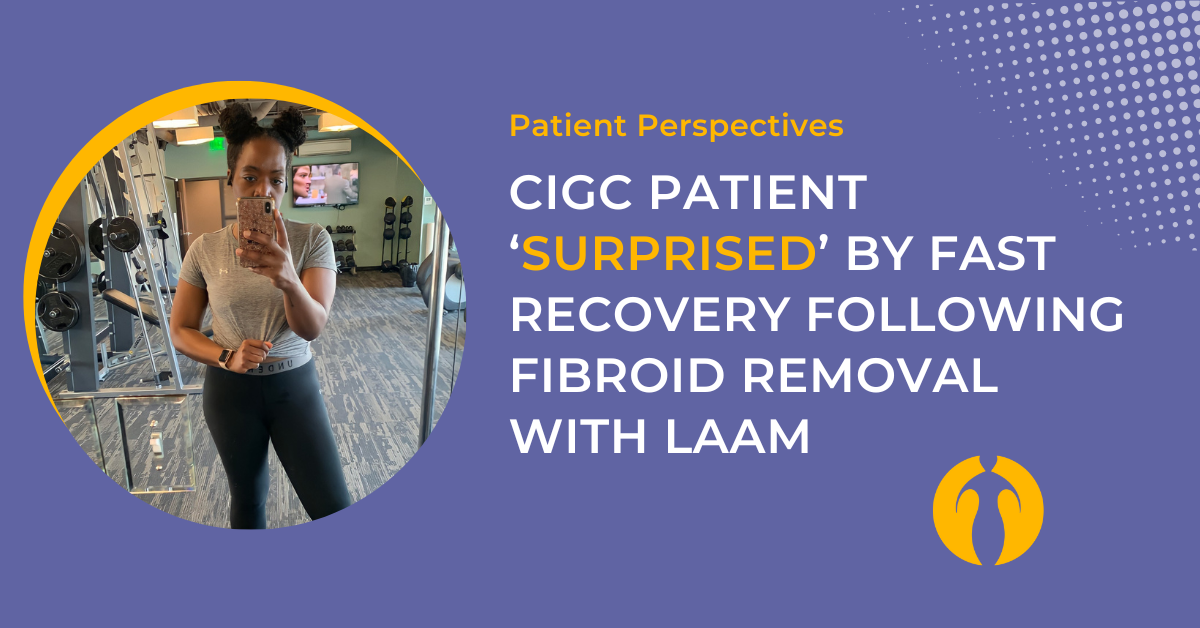- April 27, 2021
Adenomyosis and Fertility: Is Pregnancy Possible?

Adenomyosis, a disease that occurs when uterine tissue grows into the wall or muscle of the uterus, can cause a variety of severe symptoms, including heavy bleeding, painful periods and bloating or swelling in the abdomen. In addition, adenomyosis can also cause infertility in childbearing-age women.
For women who want to have children, an adenomyosis diagnosis can bring up a lot of questions and concerns. While answers to common questions vary by individual case, here’s what women need to know about the connection between adenomyosis and infertility.
ON THIS PAGE:
- Can I Get Pregnant Naturally with Adenomyosis?
- Can I Carry My Baby to Term with Adenomyosis?
- Does Pregnancy Cure Adenomyosis?
The GYN surgical experts at The Center for Innovative GYN Care provide treatment options for adenomyosis. Talk to a patient advocate about meeting with a specialist who will help you explore your options.
Request a Consultation
Call 888-787-4379
Can I Get Pregnant Naturally with Adenomyosis?
While it is possible to become pregnant despite having adenomyosis, it can be very difficult. The rogue tissue inside the uterine wall will grow and thicken over time, making implantation of a fertilized egg less likely. Adenomyosis can lead to anatomical distortion of the uterus, which can enlarge the uterus and obstruct organs that are necessary for conception. If the tubes are blocked, for example, that will make fertility highly unlikely. Adenomyosis can also trigger an inflammatory response in the pelvis, disrupting the normal functioning of pelvic organs and conception processes.
Adenomyosis can be temporarily managed through various hormonal medications. For childbearing-age women who want to have children someday, hormonal suppression through birth control or an intrauterine device may help to lessen symptoms in the meantime.
CIGC’s advanced hysterectomy technique provides the best surgery and recovery experiences possible. Talk to a patient advocate to find out more.
Request a Consultation
Call 888-787-4379
Can I Carry My Baby to Term with Adenomyosis?
For women who are able to get pregnant, adenomyosis can increase the risk of pregnancy complications. Research¹ shows women with adenomyosis have higher instances of miscarriage, preterm birth and other problems during pregnancy.
While these risks are scary, they can be mitigated by a close watch from physicians. It’s important for pregnant women with adenomyosis to be carefully monitored by their doctors so any potential complication can be discovered and addressed as quickly as possible.
Does Pregnancy Cure Adenomyosis?
Previous childbearing and cesarean sections can actually increase the risk of developing adenomyosis. Incisions from previous abdominal surgeries often leave behind scar tissue, which can contribute to adenomyosis. Once you are finished with childbearing, the only true cure for adenomyosis is a hysterectomy.
Adenomyosis lesions cannot be separated from the uterine wall without also cutting into the uterus, rendering it too damaged to hold a pregnancy. A minimally invasive hysterectomy is the best way to relieve symptoms and stop any additional adenomyosis growth. The GYN specialists at CIGC are masters in minimally invasive hysterectomies that put patients first. With just two small incisions and minimal scarring, patients recover in a week on average.
Whether you’re looking for a nonsurgical treatment option to maintain your fertility or you’re ready to find complete relief, our adenomyosis specialists are here to help.
CIGC adenomyosis specialists can help you plan for the future. Talk to a patient advocate to get started today.
Talk to a Patient Advocate
Call 888-787-4379
For those who wish to become pregnant in the future, the presence of adenomyosis can make fertility challenging. In this clip, CIGC’s Natalya Danilyants, M.D. discusses some options for managing adenomyosis symptoms in the meantime.
Book A Consultation
CIGC is dedicated to providing information and materials for women to better understand the symptoms and best treatment options for gynecological conditions like adenomyosis. The CIGC founders, minimally invasive GYN surgical specialists Paul MacKoul, MD, and Natalya Danilyants, MD, developed their advanced GYN surgical techniques using only two small incisions with patients’ well-being in mind.
Their personalized approach to care helps patients gain a better understanding of their condition and the recommended treatment so they can have confidence from the very start. Our surgeons have performed more than 25,000 GYN procedures and are constantly striving to improve outcomes for patients.
- Read the full article:
- Posted in: GYN Surgery, Adenomyosis, Featured







